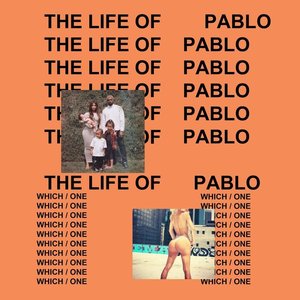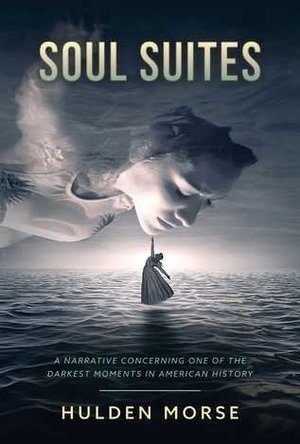
Airport Scanner
Games and Travel
App
Try your skills as an Airport Baggage screener in Airport Scanner! Now featuring the ALL NEW R&D...

New York Subway MTA Map
Navigation and Travel
App
New York Subway uses the official MTA subway map and includes a handy route planner. With over...
Bong Mines Entertainment (15 KP) rated The Life of Pablo by Kanye West in Music
Jun 7, 2019
ULTRA LIGHT BEAMS
The opening track functions as a Sunday-morning church revival, where Kanye is the ordained minister. He’s standing in the pulpit, preaching a time-sensitive sermon to his loyal congregation.
His message: God over Satan, keep the faith, pray for Paris, pray for parents, and we’re living God’s dream.
West sets the tone and declares where he stands on religious and socially-driven issues.
A Gospel choir emerges. The Dream and Kelly Price reinforce West’s message by singing verses of encouragement, leading to a heartfelt testimonial by Chance The Rapper.
While the collection plates are being filled with hopes of a better tomorrow, Kirk Franklin concludes the service by praying for everyone. He uplifts those who feel they are not good enough or have said, “I’m sorry,” too many times.
Father Stretch My Hands (Pt. 1)
A spiritual figure, Pastor T.L. Barrett, ushers in the second track with praises to The Most High. Future appears for a brief moment and Kid Cudi delivers a stunning chorus.
A liberated West returns to the pulpit and gives a brief, but somewhat explicit testimony of his past and present relationships to Amber Rose and Kim Kardashian.
Father Stretch My Hands (Pt. 2)
West continues his testimony and raps about his personal experiences. He speaks on the importance of returning his wife’s phone calls and not wanting to make the same mistakes his father made. Also, he mentions the passing of the mother in Hollywood, being broke, and the reason why he broke his jaw.
West’s words hit home, making room for another liberated soul to tell his story of triumph.
Desiigner, a newly-signed artist of G.O.O.D. Music, emerges from the underbelly of the ghetto. He raps about getting money illegally, drugs, and violence-familiarized by urban-street hustlers.
Though his grim subject matter contradicts the song’s hopeful message of liberation, it somehow adds mysticism or substance to Kanye’s brutally-honest testimony.
Desiigner, blessed with a futuristic flow, highlights a few things that West’s congregation needs to examine in order to be totally liberated.
FAMOUS
Whenever an important event occurs in an urban community, an after party is sure to follow. And a host of celebrities are always on standby to attend it. The Life of Pablo is no exception.
The fourth song features Rihanna and legendary-producer Swizz Beatz. Also, it contains timeless vocals from Sister Nancy and Nina Simone.
West, no longer in church clothes, stands out lyrically with witty, braggadocios lyrics.
Whether that statement is factual or not, it’s doesn’t really matter because West believes it is.
FEEDBACK
The fifth song serves as a transformational period, where West shows signs of the old Kanye.
West doesn’t need a psychiatrist to diagnose his problems. He does that himself by wearing them on his sleeves.
LOW LIGHTS
On the sixth track, West wrote via Twitter, “I put Low Lights on my album just thinking about all the moms driving their kids to school, then going to work.”
Listeners can now relate to the everyday struggle that mothers endure.
The song features an acapella sample from “So Alive” by Kings of Tomorrow.
The woman gives a grateful-testimony of God’s graciousness over a laid-back, simple piano groove. Her honesty is felt. Also, she sounds liberated because her Creator has accepted her for who she is.
HIGH LIGHTS
From lows to high, the seventh track is in direct correlation to “Low Lights”.
West and Young Thug put on their festive robes because it’s time to celebrate life. El Debarge and The Dream chime in, and West addresses a lingering issue.
But this is only the beginning. West finishes strong with more thought-provoking lyrics.
FREESTYLE 4
The eighth track features Desiigner. Again, when he and West are together, all hell breaks loose.
The once festive scene transforms into a grimy underworld filled with a prostitute that West is explicitly lusting after. The temptation makes it difficult for him to stand on his opening statement of Jesus over Satan. But the power of darkness is more powerful than West thinks. So, he subconsciously indulges in sexual misconduct.
I LOVE KANYE
On the ninth track, West realizes that he’s at war with himself. The old Kanye, known for chopping up soul records is fighting against the new Kanye that everyone hates. But Kanye wants to go back to being sweet again if that’s even possible. His multiple egos are fighting for control over the ‘real’ Kanye.
WAVE
West doesn’t stare in the mirror for too long. On the tenth track, redemption happens. Chris Brown, disguised as an angel, comes to West’s aid by providing much-needed light.
Miraculously, the sun emerges from the shade, a bird flies out its cage, and a nostalgic feeling is felt.
West realizes that nothing is impossible because waves don’t die and feelings don’t really go away.
FML (FOR MY LADY)
On the eleventh track, West realizes what’s really important to him and that’s his wife. Someone he won’t jeopardize for no other woman. Also, his children are all layers of his soul.
The Weeknd appears in the form of West’s conscience.
West remains focused and listeners can feel the positive aura of God surrounding him. He is determined to remain faithful to only Kim, no other woman.
REAL FRIENDS
West continues his introspective outlook and raps about trust issues that everyone can relate to. His honest, down-to-earth lyrics, mixed in with Ty Dolla $ign’s vocals, paints a vivid picture. Also, it forms a collectible souvenir that hangs nicely in listeners’ collective memories.
WOLVES
The thirteenth track provides a cooling effect with wild emotions and bizarre-sounds.
The setting, maybe an extraterritorial realm in West’s subconscious mind. Perhaps, it’s the Milky Way Galaxy or a dream-state of Saturn.
A time for relaxation, preparing listeners for a surprise guest.
SILVER SURFER INTERMISSION
The fourteenth track features a phone conversation between incarcerated Max B and French Montana. Also, Max voices his gratitude to West for showing him love.
30 HOURS
On the fifteenth track, West takes a trip down memory lane and raps about an ex-girlfriend that he used to drive 30-hours to see. He used to drive from Chicago to St. Louis, St. Louis to Chicago. He recalls the good times they shared. But unfortunately, her infidelity was the reason why they broke up.
NO PARTIES IN L.A.
The sixteenth track will go down in history as a legendary bar-fest between two elite emcees. Kendrick Lamar and West rap with dope punchlines and clever metaphors over a Madlib-produced track. Once again, West is flowing like the old Kanye that people love.
FACTS
The seventeenth track is a standout anthem where West brags that Yeezy just jumped over Jumpman. He’s in boss-mode, talking that big-money talk.
FADE
The final track features Post Malone and Ty Dollar $ign. The song has a reoccurring sample from Rare Earth, “Your love is fading/I feel it fade.”
The Eli Linnetz-directed video shows Teyana Taylor explicitly dancing.
CONCLUSION
Kanye West’s “The Life of Pablo” is a memorable hip-hop album with solid content and heavy replay value.
https://www.bongminesentertainment.com/kanye-west-life-pablo/
Amanda (96 KP) rated Soul Suites in Books
Mar 14, 2019
***There will be a SLIGHT Spoiler***
I wasn't entirely sure about it. The story starts off with the author stating that he is recounting what he has done and feels the story should be told. So at first, you're thinking, wait? Is this a true story?
The more I read about Reaching Dreams and Charles Pearson's disappearance, the more I really started to wonder if this was truly a real story. About halfway through the book, I finally decided to just google the story and the company. Surprise, surprise...yeah, not real.
Basically, Charles Pearson (CEO of Reaching Dreams) goes undercover as a homeless man in one of their districts in the streets of Chicago to see how this company was thriving while others were not. One night, while he was sleeping in his sleeping bag, he was picked up and taken to an unknown location, along with quite a few others that have gone missing.
The establishment is run by Dr. Raymond, whom is such a fickle kind of character. I inflicts torture on these people and actually KILLS them to prove that there is indeed an afterlife, but he misses having a relationship with patients and wants to connect with them. It really rubbed me the wrong way how the guards and other technicians are just OKAY with the procedures because they get paid well and benefits. Money makes the world go round, unfortunately.
Reading through this story, it makes me sad to think about some people who do live on the streets and are just trying to get by. There are some, however, that choose to live on the streets because they are essentially free.
The story was difficult to read, but it wasn't a bad story either. It's told by an unreliable narrator for the most part, which are not my favorite kind of books. I will say, Morse had me going. The story was pretty steady paced. Some chapters were long detail that were a bit drawn out, but it's necessary to understand each individuals backgrounds.
Charles' story is heartbreaking that it was a struggle to read through some of it.
Even though the story is fiction, you can't rule out the possibility that something like this could very well be hidden and we have no idea about it. Something to think about.
It is dark and has some detailed stories on some people and torture.
Whatchareadin (174 KP) rated Unbound (Colours of Love, #1) in Books
Apr 9, 2019
Once at Huntington Ventures, Jonathan extends her internship from working in the investment department to working side by side with him. Grace or no one else in the company was expecting this turn of events. Jonathan has never had an intern working with him before. Will Grace be able to work this closely with Jonathan without falling in love with him? Everyone has warned her about this man, including Jonathan himself. This is going to be an interesting and exciting three months.
Unbound is the first in the Colors of Love series by Kathryn Taylor. I'm not sure how many books total are in the series. Book two Uncovered, is set to be released in the United States on August 17, 2015.
This book starts off a lot like 50 Shades of Grey. The virgin meets this wealthy, handsome man and is enticed by his power and the fact that he is unattainable. Jonathan's sexual desires aren't sadistic the way Christian Grey's are, I would say he's just a bit kinky. Then there's a little "Eyes Wide Shut"(Tom Cruise/Nicole Kidman sex club movie) thrown in. I enjoyed this book. The erotic scenes are believable. I think a few words may have been lost in translation, though, as I believe this book was first written in German. For instance, the word clit is never used, but "sensitive place" is used quite a bit and, in my opinion, in those instances, clit would have been an appropriate word to use.
I'm not a big fan of Jonathan Harrington, he seems to be abrasive to everyone. Grace seems a little naive for a woman embarking on her own to London for three months. Maybe these two are meant to be or maybe we have another erotic romance series on our hands that we will grow to love to hate like 50 Shades and the Crossfire series. Either way, come on August for Colors of Love #2 - Uncovered.
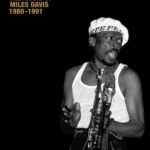
The Last Miles: The Music of Miles Davis, 1980-1991
Book
Miles Davis was one of the musical giants of the twentieth century. In a career that spanned more...
Down and Out in the New Economy: How People Find (or Don't Find) Work Today
Book
Finding a job used to be simple. You'd show up at an office and ask for an application. A friend...
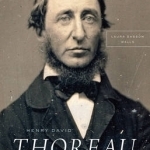
Henry David Thoreau: A Life
Book
Walden. Yesterday I came here to live. That entry from the journal of Henry David Thoreau, and the...
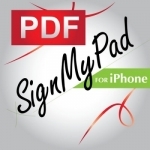
SignMyPad for iPhone
Business and Productivity
App
SignMyPad has finally come to the iPhone! SignMyPad is the leading global PDF signature app that...

Brett Eldredge by Brett Eldredge
Album
Singing country music with a soulful edge and more than a dash of pop polish, Brett Eldredge was...
